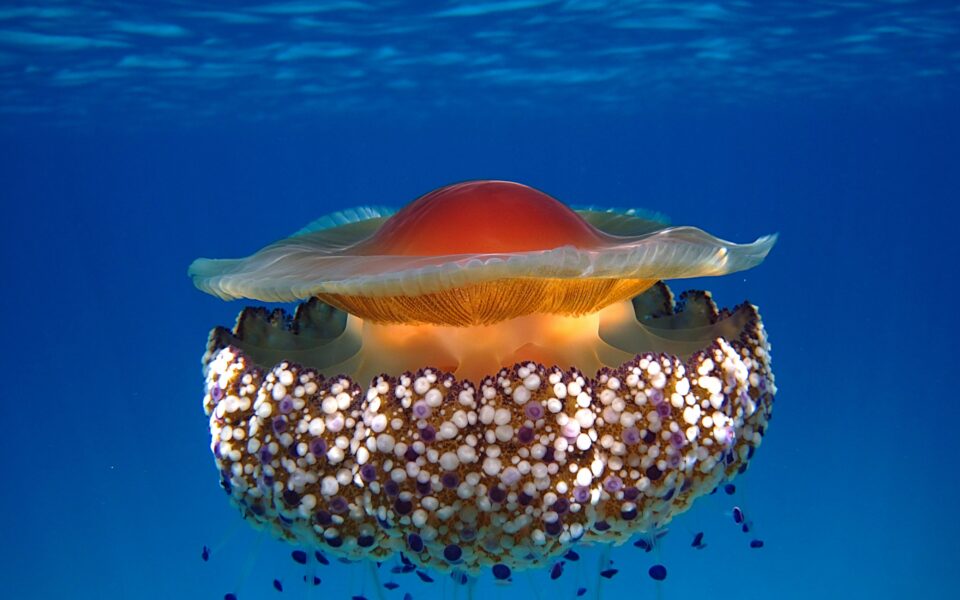After the purple jellyfish, which delivers a painful but non-lethal sting, started making its presence felt among beachgoers earlier this summer, the Mediterranean jellyfish has also made an appearance, not least on Wednesday in the Evripos Strait near the town of Halkida on Evia.
“We are not surprised by the sight,” Christos Taklis, marine biologist and manager of the Greek Biodiversity Observatory, explained to newspaper Kathimerini.
“Numbers of the Mediterranean jellyfish (Cotylorhiza tuberculata) swell every year at this time, from late July, that is, until the end of September,” he said, The jellyfish, also known as the ‘fried egg’ or ‘saloufa,’ is completely harmless, its sting having almost no effect on the human body.”
It may have been in the spotlight on Tuesday off Halkida, but it is often found elsewhere in the Mediterranean, the Aegean Sea and the Adriatic Sea.
“The Mediterranean jellyfish is always found in clear waters, eats plankton and shelters small fish that nest in its tentacles,” said Taklis.
“Its appearance now in Halkida is not at all related to the appearance of the purple jellyfish in recent times,” he stressed, predicting that in the coming weeks “swarms” of Mediterranean jellyfish may be found in other parts of Greece.
However, the number of purple jellyfish has been greatly reduced.
“Especially in the Aegean, the records are very few,” he noted.
This article was previously published at ekathimerini.com.











